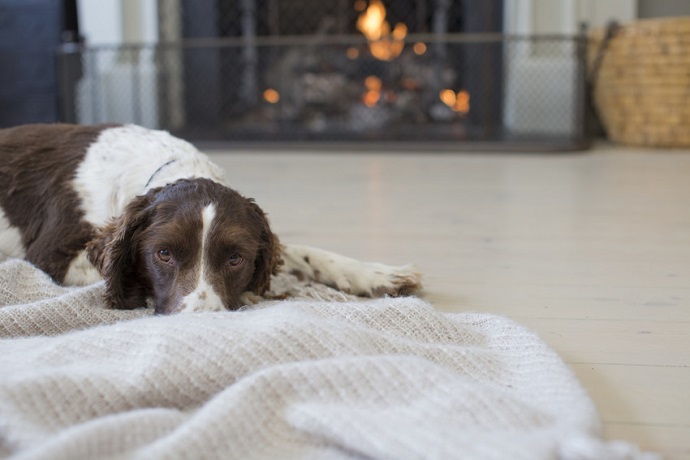Heating your new rural home
If you’re tired of city life and looking to move to the countryside, a beautiful house in a quiet village may be the perfect retreat. Buying or renting a rural home has lots of benefits, including a more relaxed way of life and sense of community.

Many of us take for granted a connection to the mains gas network, with an instant supply of fuel for heating, hot water and cooking.
However, making a move to the countryside means that your home might not be connected to mains gas, so you’ll have to give more consideration to how the house is heated – including the age of system, reliability of supply, ease of use and running costs.
If other fuels are unfamiliar to you, it can be confusing trying to understand your options, so the rural heating experts at Calor gas have created this handy guide to alternative rural fuels…
Oil
Traditionally used in many off-grid homes, oil fuels boilers used in ‘wet’ systems, where hot water is supplied to radiators and taps. Oil is known to be efficient, with modern condensing oil boilers achieving efficiencies of 90 per cent and more.
Oil needs to be stored in a tank in the garden, and some people may find this off-putting. Oil theft is also a big issue in rural areas, as it can be easily siphoned, which poses a security risk, and if there’s an oil leak you may be responsible for any leakages.
Oil is delivered by road and sensors are available to monitor your oil level, but you’ll be responsible for checking your levels and ordering top-ups when needed. The price of oil is currently competitive, but this fluctuates so there is no guarantee how much it will cost each refill.
Solid Fuel
A solid fuel option, such as a coal or wood-burning stove, can look fantastic in a country home. You’ll need somewhere to store the wood or coal, and you’ll have to refill the stove regularly. There will be soot produced that can be messy, and you may find your home heats up unevenly. Solid fuel options only provide heating, so an electric immersion tank may also be needed for hot water.
Electricity
Electric boilers and electric storage heaters are another option, storage heaters being cheaper than electric boilers to install and maintain. However, you don’t have the same level of control over your heating as you do with a central heating system. You may be forced to use a specialist tariff to control costs too – on average it’s 2-3 times more expensive to heat a home using electricity than oil, LPG and solid fuel*.
Renewables
If you are eco-minded, you could opt for solar, or an air source heat pump. These are the most environmentally friendly fuel sources, but can be very costly to buy and install. You may also still need a backup supply of fuel such as oil or LPG for times of the year when the weather does not allow the system to work effectively.

LPG
LPG is the closest alternative to being on mains gas and is fast becoming the choice of fuel for those living off-grid. Having LPG connected to your home means you can use it for heating and hot water, gas fires, and gas cooking.
LPG is the cleanest and greenest of all off-grid fossil fuels and is also really efficient with modern condensing LPG boilers achieving efficiencies of 90 per cent and more, and is virtually impossible to steal. Automatic top-up technology is available on LPG tanks, monitoring gas levels and alerting the supplier when a delivery is required, meaning there’s no need to check fuel levels or re-order.
Most LPG suppliers such as Calor own the LPG storage tank, and for a small monthly charge, insure and maintain the tank, so you don’t need to worry about its upkeep.
An LPG tank can be easily hidden underground which looks nicer, and if you’re short of outside space or have lower heating needs, compact cylinder packs are available too. LPG suppliers such as Calor also offer fixed rates for certain periods, which is a plus if you’re looking to keep in-control of your heating costs.
*https://www.ovoenergy.com/guides/energy-guides/heating-costs-gas-vs-oil-vs-electric-storage-heaters.html




